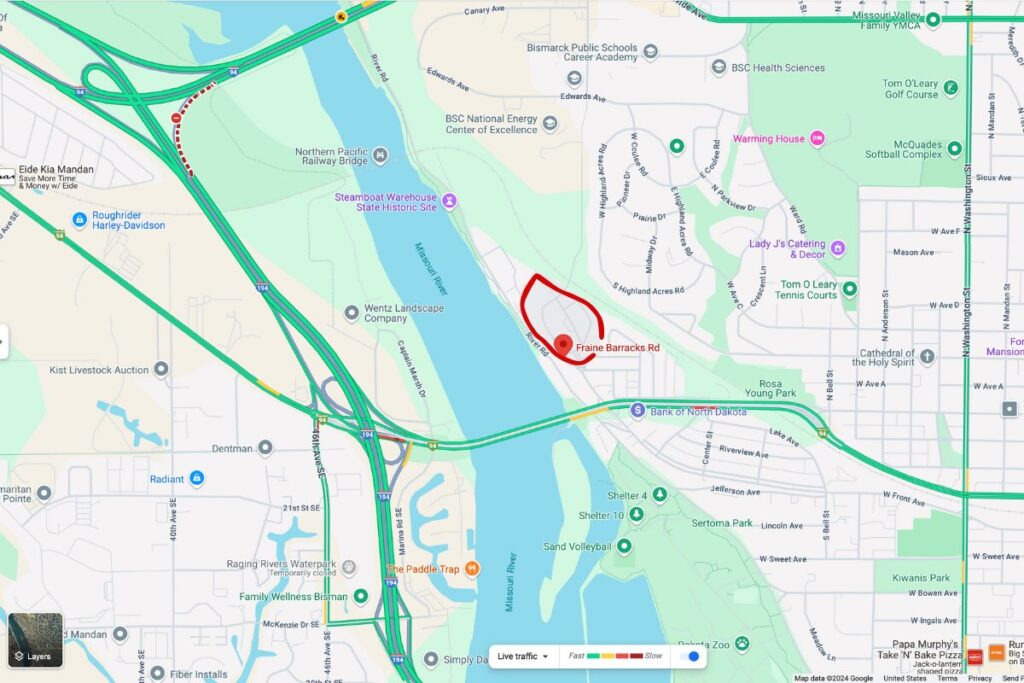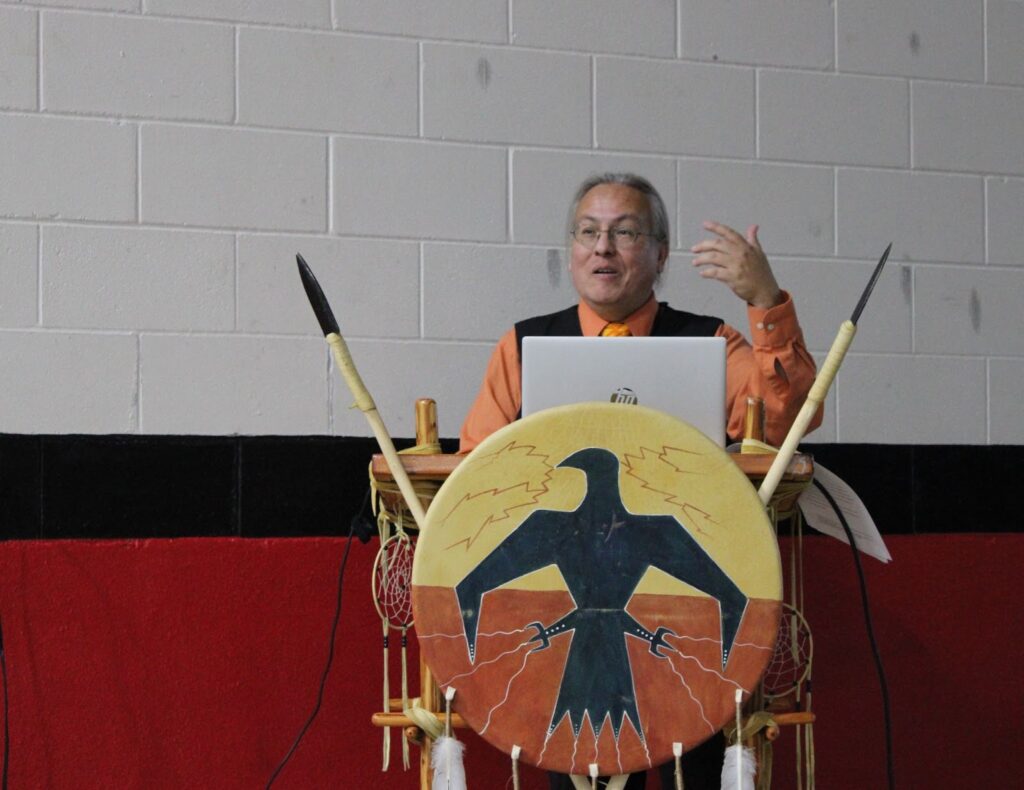
Dakota Goodhouse, a Native American studies instructor, presented his findings on the conditions of the Bismarck Indian Boarding School during United Tribes Technical College’s Orange Shirt Day event on Sept. 30. (Photo credit/ Adrianna Adame)
“These were children. They weren’t young adults.” With these words, Dakota Goodhouse cut through layers of sanitized history, laying bare the harsh realities of the Bismarck Indian Boarding School. His recent presentation, unveiling truths long obscured, became the centerpiece of United Tribes Technical College’s Orange Shirt Day.
UTTC hosted a walk and talk on Monday with Goodhouse, a Native American studies instructor at the college, to discuss boarding schools. Before the presentation, attendees gathered at Lone Star Arena on campus, where around 75 participants, including students from Theodore Jamerson Elementary, held signs reading “National Day of Remembrance: Every Child Matters” throughout the walk.
During the talk, the instructor shared stories about several students who attended Bismarck Indian Boarding School, including his own great-grandmother. His presentation discussed his findings about the operations of the institution, which was located by what is now known as the Fraine Barracks near Missouri River and ran from 1908 to 1937.

“That included all the hardships, all the infestations at the school, all the illness and sickness that the children experienced,” he said.
UTTC President Leander “Russ” McDonald thanked everyone who participated in the event. He acknowledged that the generational trauma from Indian boarding schools still affects families today and emphasized the importance of remembrance and healing. While Goodhouse gave his presentation, sage was passed around the room.
“We went around with sage to help smudge and relieve some of the tension that could be within the facility right now,” he said. “In remembering those spirits, in remembering those young children that were here, we want to remember them in a good way and not just leave here heavy,” McDonald said.
“The spirits and the children that were here before, help them rest. The generations that came here afterward, help them use this land in a way that’s going to fulfill their destiny.”
Leander “Russ” McDonald, UTTC President
The first step in healing is acknowledging the truth. Goodhouse began his research with a visit to the regional archives in Kansas City, Missouri, with help from the Northern Heritage Plains Foundation, a nonprofit based in Bismarck. Although he spent several days there, the vast number of records prevented him from examining them all.
“There were several boxes, 50 or 60, maybe more,” he said. “I was very selective with what I was trying to read in so short of a time. Eventually, I just took pictures of all the records I could.”
Last spring, Goodhouse took a U.S. history class for his PhD program at North Dakota State University that focused on the 1800s through the 1960s. The time period of the assignment coincided with the operation of the Bismarck Indian Boarding School. Over three months, Goodhouse was able to turn his findings into a 17-page article.

“So I wrote a paper for class as an assignment based on the work, and the research I was able to pull from the regional archives,” he said. “And I started developing this paper. By the end of the semester, it’s almost exactly as you heard it today.”
Since the paper’s completion, Goodhouse has submitted his findings to the Tribal College Journal for publication. He recently presented his findings at the Tribal Leadership Summit, UTTC’s Orange Shirt Day and Orange Shirt Day: North Dakota. Goodhouse initially hoped his research would be published this fall in time for the day of remembrance, but now he hopes it will be released by spring.
Goodhouse said he felt the need to shed some light on the Bismarck Indian Boarding School. “We know boarding schools in general have a dark history, but all the published work about the Bismarck Indian Boarding School is light,” he said. “It feels sifted through and it feels a little too clean. I felt I needed to share this, especially that students themselves and one of the superintendents felt like they were managing a jail.”
As the event came to an end, McDonald reminded attendees to take care of themselves and their relatives.
“The spirits and the children that were here before, help them rest,” McDonald said. “The generations that came here afterward, help them use this land in a way that’s going to fulfill their destiny. Live the life that we have in the best way possible.”

